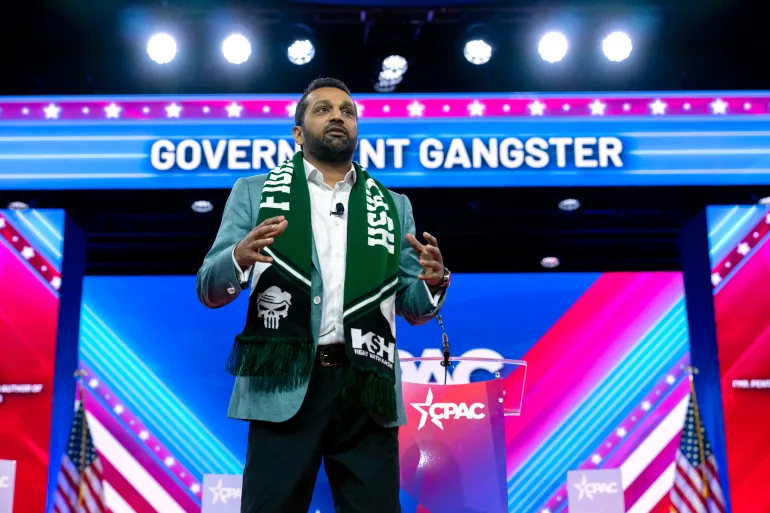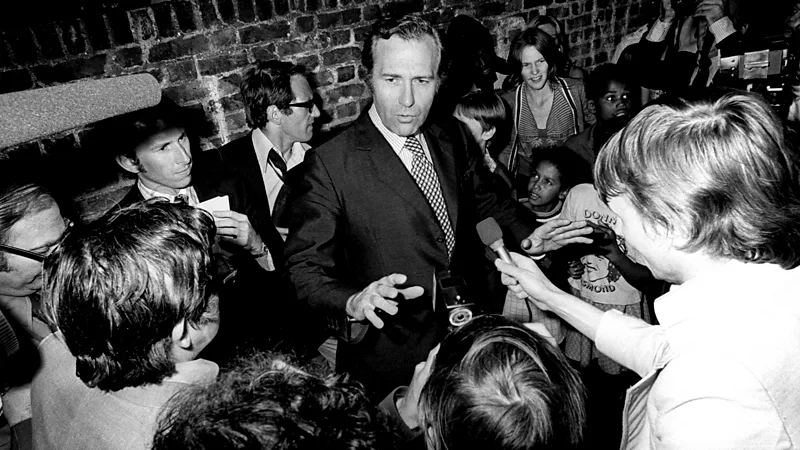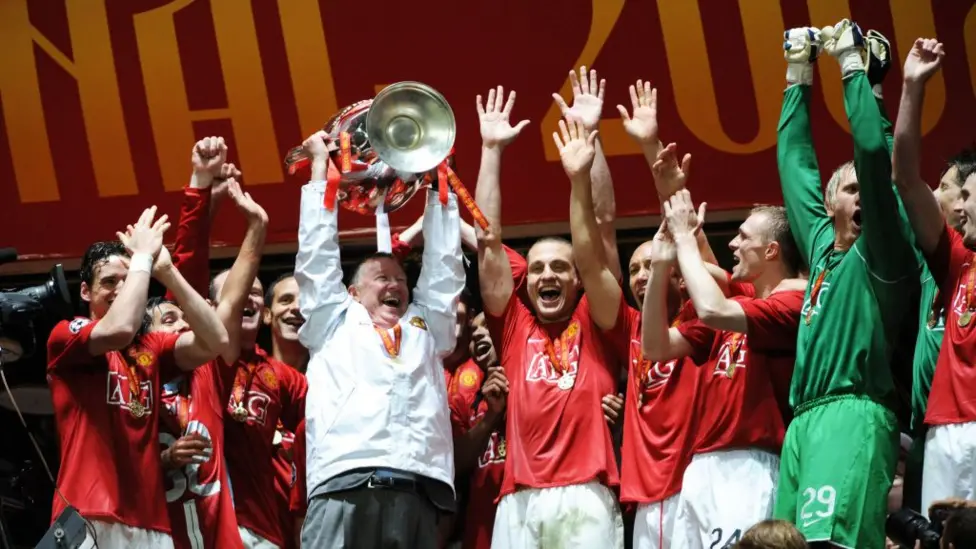Politics
Who is Kash Patel, the Trump loyalist tapped to run the FBI?

United States President-elect Donald Trump has nominated one of his most loyal aides, Kash Patel, to run the Federal Bureau of Investigation (FBI), drawing a sharp reaction from critics, who question his qualifications and impartiality to hold the position.
Patel, an outspoken critic of the FBI like his boss, has been entrusted to lead the country’s most important federal law enforcement agency.
KEEP READING
list of 4 items
list 1 of 4
Trump picks anti-‘deep state’ crusader Kash Patel to lead FBI
list 2 of 4
How does Trump envoy Keith Kellogg want to end the Russia-Ukraine war?
list 3 of 4
Is Trumpism changing the game in US politics?
list 4 of 4
Bolsonaro hoping Trump’s return will help political comeback in Brazil
end of list
The 44-year-old has steadfastly promoted the idea of the existence of a “deep state” and the belief the agency is biased against Trump. He has pushed to overhaul the agency.
With the nomination of Patel, Trump also signals that he is preparing to carry out his threat to oust Christopher Wray, a Republican he first appointed in 2017 and whose 10-year term does not expire until 2027.
Politics
‘I have been deceiving you… I’m sorry about that’: The British politician who was caught faking his own death

When John Stonehouse’s clothes were found in a pile on Miami Beach on 20 November 1974, many people presumed that the UK Member of Parliament had drowned while swimming – until he turned up alive and well in Australia on Christmas Eve. In History looks at the stranger-than-fiction tale of the man who died twice.
When John Stonehouse hatched his plan to disappear completely, he was a troubled man. His political career had stalled, his dodgy business dealings left him facing financial ruin, he was accused of being a communist spy, and he was having an extra-marital affair with his secretary. In a move borrowed from the Frederick Forsyth novel, The Day of the Jackal, Stonehouse stole the identity of two dead men. He travelled on a business trip to Miami where he vanished, in November 1974, then hopped on another plane to Australia. The ruse lasted just over a month. It was British aristocrat Lord Lucan, another infamous fugitive who disappeared around the same time, who would inadvertently lead him to get caught in Australia.
And how did Stonehouse explain his actions? The British Member of Parliament insisted to the BBC in January 1975 that he was on “a fact-finding tour, not only in terms of geography but in terms of the inner self of a political animal”.
2:55
WATCH: ‘I was trying by disappearing to make their lives easier’.
To the British public in the late 1960s, he must have seemed like a man who had it all. Postmaster General at the age of 43, with a glamorous wife and three children, he was talked about as a future Labour prime minister. He was the man who oversaw the introduction of first- and second-class stamps, but for his political career, that role was as good as it got.
Politics
How Sir Alex Ferguson built his last great Manchester United side

The first takes place in the suffocating glare of the global spotlight – in Moscow’s Luzhniki Stadium in 2008.
Millions watch on television around the world, as a British manager ascends to icon status after a torrential downpour and that slip.
The second, three years earlier, and 3,000 miles away, takes place behind the locked dressing room doors of the Estadio do Benfica in Portugal.
John Terry’s miss in the 2008 Champions League final between Chelsea and Manchester United is the stuff of footballing folklore.
The narrative says the Chelsea talisman could have won the cup but messed it up.
Rio Ferdinand’s take on proceedings is a little different.
For the former Manchester United and England defender, the origins of victory in the Russian capital must be traced back to an entirely different moment of emotion.
Years earlier, in the dry heat of a Portuguese late evening, it was a young Cristiano Ronaldo who was left in floods of tears by the famed Sir Alex Ferguson hairdryer.
Politics
Greenland and the Panama Canal aren’t for sale. Why is Trump threatening to take them?

President-elect Donald Trump ran on a platform of isolating the US from foreign conflicts like the Ukraine war, increasing tariffs on foreign trade partners, and rebuilding domestic manufacturing.
But in recent days he has suggested a more outwardly aggressive approach for his foreign policy.
At first, he joked about Canada being an additional US state. Since, he has threatened to take back control of the Panama Canal. He also reiterated a desire from his first term to own the autonomous Danish territory of Greenland, which is not for sale.
The US is unlikely to take control of any of these regions. But these statements could indicate that Trump’s “America First” vision includes flexing the superpower’s muscle beyond its borders for US trade and national security interests.
On Sunday, Trump told a conservative conference in Arizona that Panama was charging US ships “ridiculous, highly unfair” fees to use its namesake canal.
After taking charge of building the canal in the early 20th century, the US turned full control over to Panama in the 1970s via a treaty. But this week, Trump said that if the “rip off” did not stop, he would demand the canal be returned to the US – though he did not specify how.
Trump added he did not want the Panama Canal “falling into the wrong hands” and specifically cited China, which has significant interests in the waterway.
“There’s a real US national security interest… in controlling its neutrality,” Will Freeman, a fellow on Latin American studies at the Council on Foreign Relations, said of Trump’s remarks.
“Trump’s statement is mostly about that.”
China is the second-largest user of the Panama Canal after the US, according to data. It has major economic investments in the country as well.
In 2017, Panama cut diplomatic ties with Taiwan and recognised it as part of China, a major win for Beijing.
The Panama Canal is not only essential for US trade in the Pacific, Mr Freeman said – in the event of any military conflict with China, it would be needed to move US ships and other assets.
He also noted Trump’s frequent comments about trade partners’ unfair treatment of the US, as well as the president-elect’s pledge to sharply increase tariffs on foreign goods, particularly those from China.
Trump’s complaints about shipping fees seemed to reflect his views on trade, Mr Freeman said.
While the statements might be “coercive”, said Mr Freeman, it remained to be seen “whether canal authorities lower fees on US cargo in response to the threat”.
Panama’s President José Raúl Mulino has released a statement saying that the canal and the surrounding area belonged to his country – and would remain so.
-

 Entertainment4 months ago
Entertainment4 months agoEarthquake scientists are learning warning signs of ‘The Big One.’ When should they tell the public?
-

 International4 months ago
International4 months agoTarar accuses Imran Khan of conspiring with Faiz Hameed to destabilise Pakistan
-

 International2 months ago
International2 months agoPTI Announces Not to Boycott New Committees
-

 Business3 months ago
Business3 months agoMajor Corruption Scandal Uncovered at WASA Multan: Rs1.5 Billion Embezzlement Exposed
-

 Business4 months ago
Business4 months agoThe Impact of QR Codes on Traditional Advertising
-

 Business4 months ago
Business4 months agoThe Benefits and Problems of International Trade in the Context of Global Crisis
-

 Business4 months ago
Business4 months agoFraud by Pakistani Firm Sparks Outrage in Business Community; Concerns Rise Over International Investment
-

 Business2 months ago
Business2 months agoHigh Court Blocks MDCAT Merit List Amid Controversy Over Exam Error






